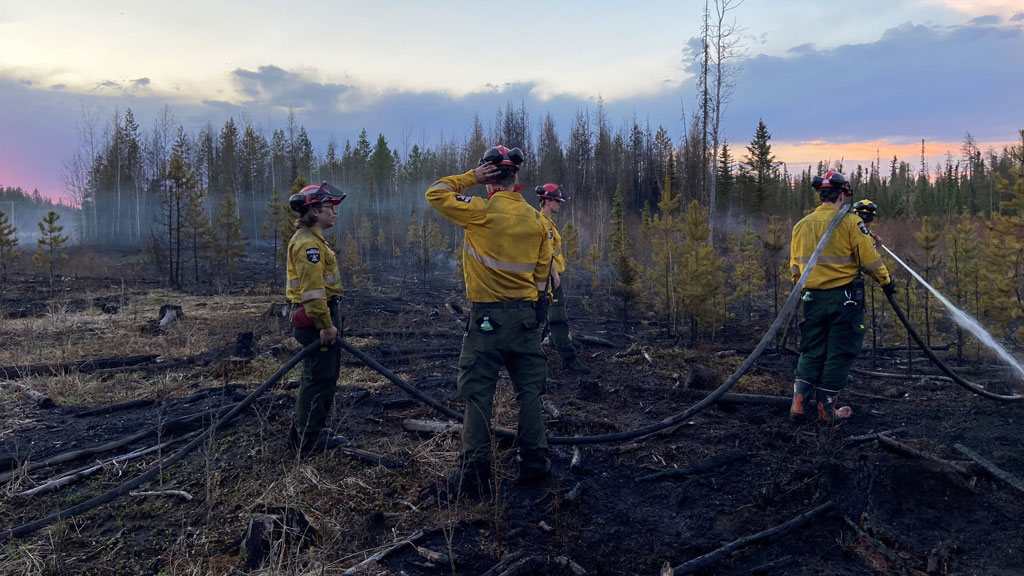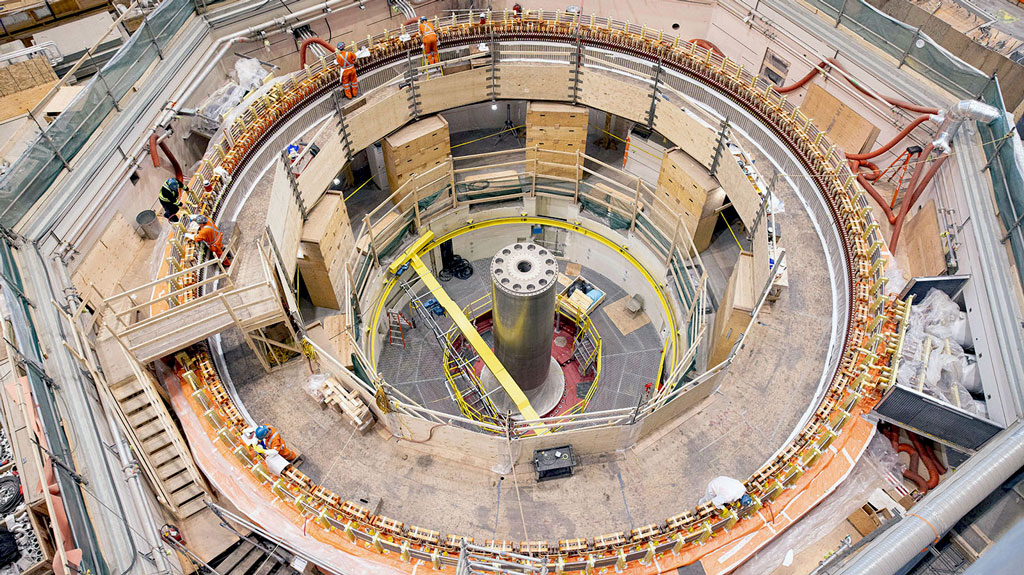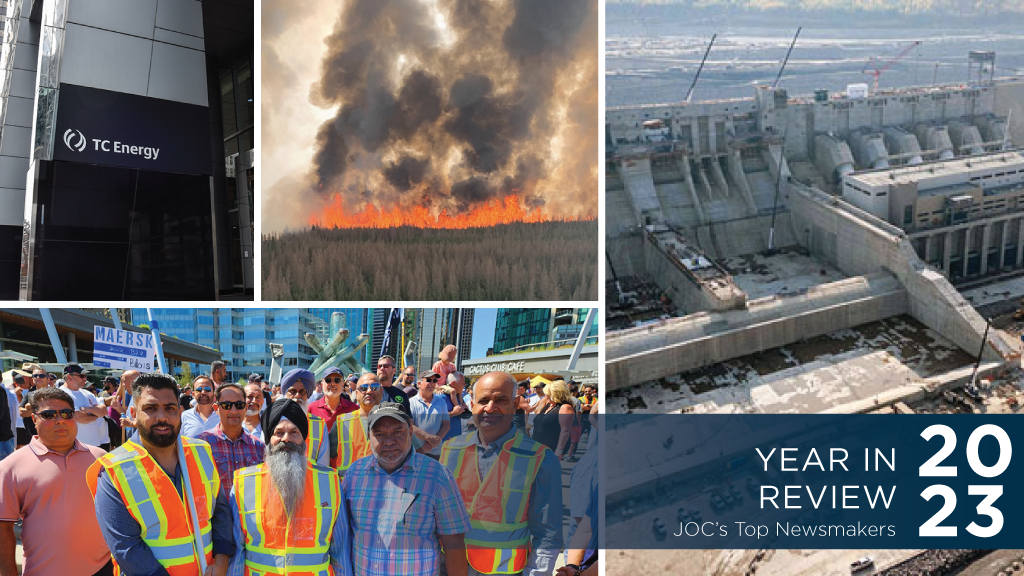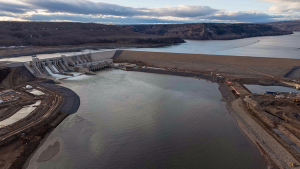B.C.’s construction industry was not without its challenges in 2023, some of them extenuating factors beyond anyone’s control, and others continuing to plague the industry despite efforts to change how systems operate.
While the housing crisis, technological innovations and economic conditions were themes that dominated the headlines throughout the year, the following headline makers also made the cut for this year’s Journal of Commerce top headlines.
Port strike impact
The ripple effect that occurred after members of the International Longshore and Warehouse Union went on strike was felt across B.C. ports and the country.
On Canada Day, approximately 7,000 members of the ILWU started striking, effectively shutting down some 30 ports across the province. Contracting out, port automation and the cost of living were key issues in the dispute.
“This is not an isolated labour dispute,” Chris Gardner, president of the Independent Contractors and Businesses Association, said in an interview at the time. “Twenty-five per cent of the goods that come into and go out of Canada go through western Canadian ports.
“The concern we have is that there’s a national public interest.”
Even Alberta’s transport minister chimed stating he was frustrated the federal government had not stepped in after one day, given Ottawa used legislation in 2021 to end a walkout by Port of Montreal dock workers after day one.
Hundreds rallied in Vancouver to support the striking workers, and after 13 days a settlement was reached, but not before some damage was done, freezing the movement of billions of dollars worth of cargo.
After the dust settled, Federal Labour Minister Seamus O’Regan said he would be launching a review to uncover “structural issues” in negotiations.
Wildfires once again plague Canada
It started around March and impacted the entire country for most of the spring and summer.
Record-setting wildfires destroyed properties, acres and acres of wooded areas and caused massive evacuations.
All the provinces and territories were impacted in some way.

By the end of July, almost 5,000 fires had burned more than 30 million acres and several firefighters lost their lives.
In the west, evacuations were widespread. Some notable evacuations occurred in Kelowna and in the Northwest Territories.
In the City of West Kelowna, the largest infrastructure project in the city’s history narrowly avoided damage from wildfires that ravaged the region. Energy companies in Alberta also curtailed operations.
One of the ways to combat the fires did involve some aspects of construction. Contractors working for the County and the City of Grande Prairie, Alta. completed the first line of the Southeast Grande Prairie Firebreak.
A firebreak/fireguard is a gap in the forest that slows or stops a wildfire. A firebreak may occur naturally or it can be created by firefighters.
The aftermath of the fires across the country has led to more discussions about building resilience and proactive measures to combat climate change with construction at the forefront.
The push for prompt payment
The federal government, Ontario, Saskatchewan, Alberta, New Brunswick, Manitoba and Nova Scotia have all either tabled or implemented prompt payment and adjudication.
B.C. still has not, much to the chagrin of industry stakeholders.
Coined the “single most important issue for our industry in 2023” by British Columbia Construction Association president Chris Atchison, prompt payment remained a constant topic of our coverage and will likely continue to do so in 2024.
In April, during Construction and Skilled Trades Month in B.C., Atchison reiterated the call for legislation, stating it was a “dereliction of duty.”
As it sits now, currently the government is still in the consultation phase. The BCCA recently released a cross-jurisdictional analysis report, which was sent to the provincial government, specifically the Ministry of the Attorney General, minister of finance and the premier, before its public release, initiating the process for consultations.
The report is the latest action taken by the BCCA, and complements a letter sent in October that was signed by over 30 industry partners.
What will 2024 bring?
Mega updates for megaprojects
It’s nearing the end of one megaproject in B.C. and another has officially wrapped up, making 2023 a year of progress on several fronts, even if there were some hiccups along the way.
For the Coastal GasLink pipeline, one of the largest energy infrastructure projects in recent Canadian history, there were some issues throughout the year pertaining to erosion and sediment control issues, with TC Energy Corp. halting construction on a 20-kilometre stretch in the spring.
The issues would surface again, albeit in a different way in September, when Coastal GasLink was fined $340,000 by the B.C. Environmental Assessment Office. The fines stemmed from four inspections of its ongoing pipeline construction project that occurred in April and May of 2022.
However, at the end of October, it was announced the project was physically complete. TC Energy Corp. said it had finished installing pipe along the entire 670-kilometre route from Dawson Creek, B.C. to Kitimat, B.C. – a milestone that marks the culmination of over five years of construction and 10 years of planning.

But that may not be the end of the line, so to speak, on this story. In mid-December it was announced TC Energy is pursuing $1.2 billion in cost recoveries from one of its contractors, Pacific Atlantic Pipeline Construction, alleging poor performance. The company was one of the main contractors involved in the building of Coastal GasLink.
After overcoming some hurdles of its own, there was news on the Site C dam front in 2023 as well. The massive $16-billion undertaking, which began in 2015, is roughly 80 per cent complete.
The megaproject is poised to add 1,100 megawatts of capacity and approximately 5,100 gigawatt hours of energy annually to British Columbia’s power grid.
The project is on track for filling in 2024 and project completion in 2025.







Recent Comments
comments for this post are closed